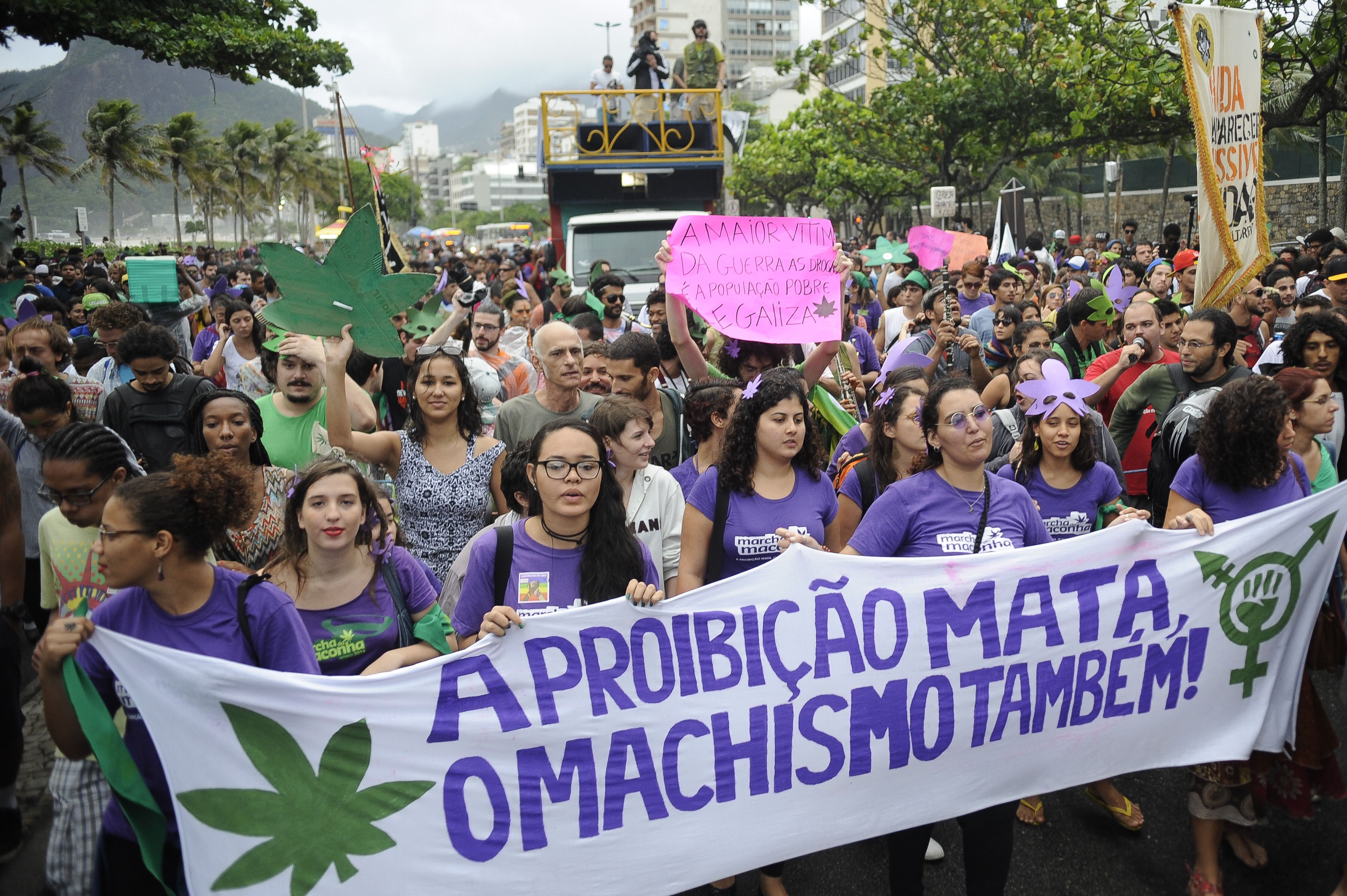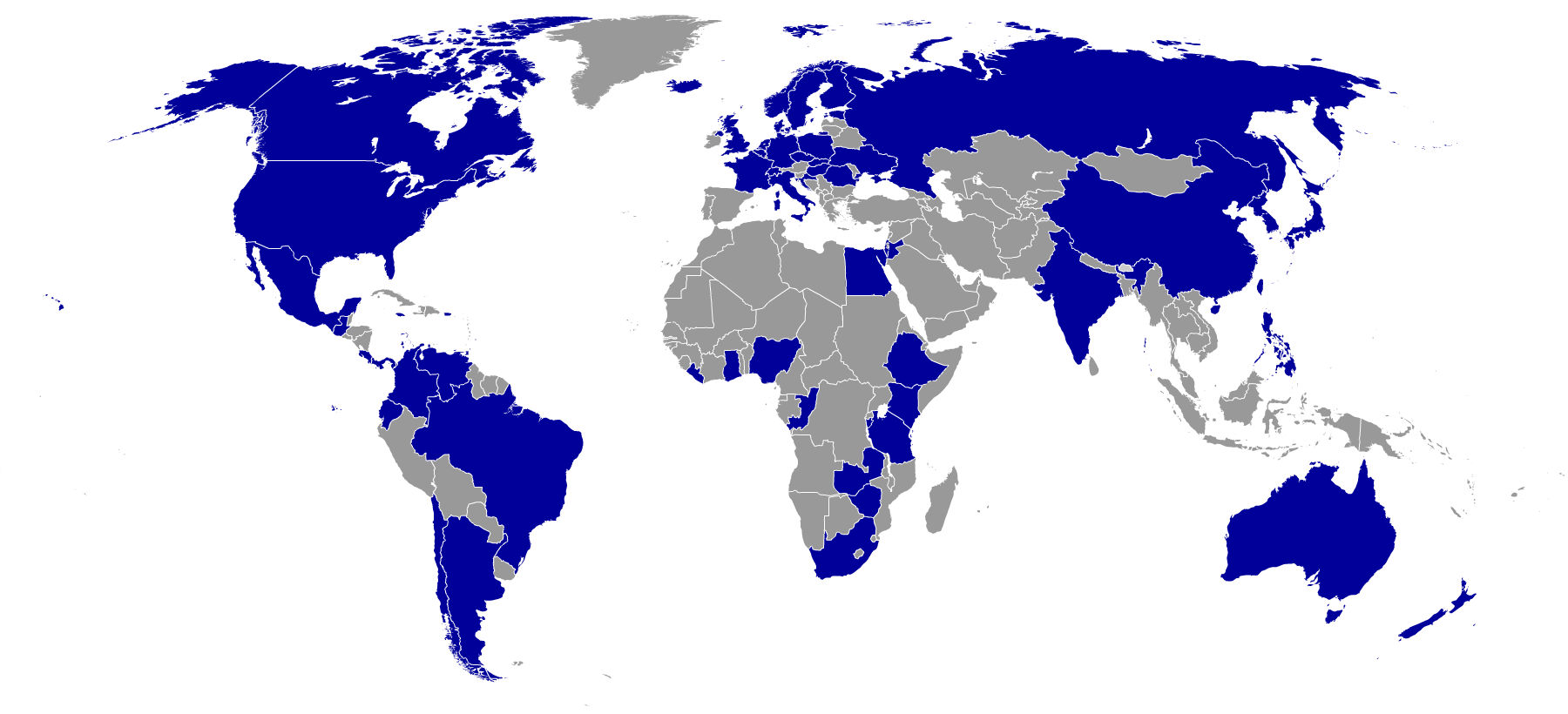|
Smoke-in
A smoke-in is a protest in favor of cannabis rights or more specifically legalization of cannabis. The Youth International Party (YIP) organized "smoke-ins" across North America through the 1970s and into the 1980s. The first YIP smoke-in was attended by 25,000 in Washington, D.C., on July 4, 1970. There was a culture clash when many of the hippie protesters strolled en masse into the nearby "Honor America Day" festivities with Billy Graham and Bob Hope. On August 7, 1971, a Yippie smoke-in in Vancouver was attacked by police, resulting in the Gastown Riot, one of the most famous protests in Canadian history. The annual July 4 Yippie smoke-in in Washington, D.C., became a counterculture tradition. Other smoke-ins as protests for cannabis law reform have been held in the 1960s in London; and through the 1990s at least at the U.S. Capitol, and in and around Austin, Texas. See also * 420 (cannabis culture) 420, 4:20 or 4/20 (pronounced four-twenty) is cannabis culture ... [...More Info...] [...Related Items...] OR: [Wikipedia] [Google] [Baidu] |
Youth International Party
The Youth International Party (YIP), whose members were commonly called Yippies, was an American youth-oriented radical and countercultural revolutionary offshoot of the free speech and anti-war movements of the late 1960s. It was founded on December 31, 1967. They employed theatrical gestures to mock the social status quo, such as advancing a pig called " Pigasus the Immortal" as a candidate for President of the United States in 1968. They have been described as a highly theatrical, anti-authoritarian, and anarchist youth movement of "symbolic politics".Abbie Hoffman, Soon to be a Major Motion Picture, page 128. Perigee Books, 1980. Since they were well known for street theater, protesting against the criminalization of cannabis in the United States with smoke-ins, and politically themed pranks, they were either ignored or denounced by many of the Old Left. According to ABC News, "The group was known for street theater pranks and was once referred to as the 'Groucho Marxis ... [...More Info...] [...Related Items...] OR: [Wikipedia] [Google] [Baidu] |
Smoke-in Van
A smoke-in is a protest in favor of cannabis rights or more specifically legalization of cannabis. The Youth International Party (YIP) organized "smoke-ins" across North America through the 1970s and into the 1980s. The first YIP smoke-in was attended by 25,000 in Washington, D.C., on July 4, 1970. There was a culture clash when many of the hippie protesters strolled en masse into the nearby "Honor America Day" festivities with Billy Graham and Bob Hope. On August 7, 1971, a Yippie smoke-in in Vancouver was attacked by police, resulting in the Gastown Riot, one of the most famous protests in Canadian history. The annual July 4 Yippie smoke-in in Washington, D.C., became a counterculture tradition. Other smoke-ins as protests for cannabis law reform have been held in the 1960s in London; and through the 1990s at least at the U.S. Capitol, and in and around Austin, Texas. See also * 420 (cannabis culture) 420, 4:20 or 4/20 (pronounced four-twenty) is cannabis culture ... [...More Info...] [...Related Items...] OR: [Wikipedia] [Google] [Baidu] |
420 (cannabis Culture)
420, 4:20 or 4/20 (pronounced four-twenty) is cannabis culture slang for cannabis consumption, especially smoking around the time 4:20 p.m. (16:20). It also refers to cannabis-oriented celebrations that take place annually on April 20 (4/20 in U.S. date form). Origins Five high school students in San Rafael, California, coined the term as part of their 1971 search for an abandoned cannabis crop, based on a treasure map made by the grower. Calling themselves the Waldos, because their typical hang-out spot "was a wall outside the school", the five students—Steve Capper, Dave Reddix, Jeffrey Noel, Larry Schwartz, and Mark Gravich—designated the Louis Pasteur statue on the grounds of San Rafael High School as their meeting place, and 4:20 p.m. as their meeting time. The Waldos referred to this plan with the phrase "4:20 Louis". After several failed attempts to find the crop, the group eventually shortened their phrase to "4:20", which ultimately evolved into a code-word t ... [...More Info...] [...Related Items...] OR: [Wikipedia] [Google] [Baidu] |
Cannabis Rights
Cannabis rights or marijuana rights (sometimes more specifically cannabis consumer rights or stoner rights) are individual civil rights that vary by jurisdiction. The rights of people who consume cannabis include the right to be free from employment discrimination and housing discrimination. Anti-cannabis laws include civil infractions and fines, imprisonment, and even the death penalty. Legality The use of cannabis for recreational purposes is prohibited in most countries. Many have adopted a policy of decriminalization to make simple possession a non-criminal offense (often similar to a minor traffic violation). Others have much more severe penalties such as some Asian and Middle Eastern countries where possession of even small amounts is punished by imprisonment for several years. Social movement The movement around cannabis laws and rights has been growing since as early as the 1960s. Multiple organizations both for and against cannabis usage have been created and m ... [...More Info...] [...Related Items...] OR: [Wikipedia] [Google] [Baidu] |
Legalization Of Cannabis
The legality of cannabis for medical and recreational use varies by country, in terms of its possession, distribution, and cultivation, and (in regards to medical) how it can be consumed and what medical conditions it can be used for. These policies in most countries are regulated by three United Nations treaties: the 1961 Single Convention on Narcotic Drugs, the 1971 Convention on Psychotropic Substances, and the 1988 Convention Against Illicit Traffic in Narcotic Drugs and Psychotropic Substances. Cannabis is only scheduled under the Single Convention and was reclassified in 2020 to a Schedule I-only drug (from being both Schedule I and IV drug previously, with the schedules from strictest to least being IV, I, II, and III). As a Schedule I drug under the treaty, countries can allow the medical use of cannabis but it is considered to be an addictive drug with a serious risk of abuse. and may be able to regulate non-medical cannabis industry under its Article 2 paragr ... [...More Info...] [...Related Items...] OR: [Wikipedia] [Google] [Baidu] |
Merriam-Webster Dictionary
''Webster's Dictionary'' is any of the US English language dictionaries edited in the early 19th century by Noah Webster (1758–1843), a US lexicographer, as well as numerous related or unrelated dictionaries that have adopted the Webster's name in his honor. "''Webster's''" has since become a genericized trademark in the United States for US English dictionaries, and is widely used in dictionary titles. Merriam-Webster is the corporate heir to Noah Webster's original works, which are in the public domain. Noah Webster's ''American Dictionary of the English Language'' Noah Webster (1758–1843), the author of the readers and spelling books which dominated the American market at the time, spent decades of research in compiling his dictionaries. His first dictionary, ''A Compendious Dictionary of the English Language'', appeared in 1806. In it, he popularized features which would become a hallmark of American English spelling (''center'' rather than ''centre'', ''honor'' rat ... [...More Info...] [...Related Items...] OR: [Wikipedia] [Google] [Baidu] |
Billy Graham
William Franklin Graham Jr. (; November 7, 1918 – February 21, 2018) was an American Evangelism, evangelist, ordained Southern Baptist minister, and Civil rights movement, civil rights advocate, whose broadcasts and world tours featuring live sermons became well known in the mid- to late 20th century. Throughout his career, spanning over six decades, Graham rose to prominence as an evangelical Christian figure in the United States and abroad. According to a biographer, Graham was considered "among the most influential Christian leaders" of the 20th century. Beginning in the late 1940s and early 1950s, Graham became known for filling stadiums and other massive venues around the world where he preached live sermons; these were often broadcast via radio and television with some continuing to be seen into the 21st century. During his six decades on television, Graham hosted his List of Billy Graham's crusades, annual "crusades", evangelistic live-campaigns, from 1947 until his re ... [...More Info...] [...Related Items...] OR: [Wikipedia] [Google] [Baidu] |
Bob Hope
Leslie Townes "Bob" Hope (May 29, 1903 – July 27, 2003) was an American comedian, actor, entertainer and producer with a career that spanned nearly 80 years and achievements in vaudeville, network radio, television, and USO Tours. He appeared in Bob Hope filmography, more than 70 short and feature films, starring in 54. These included a series of seven ''Road to ...'' musical comedy films with Bing Crosby as his partner. Hope hosted the Academy Awards ceremony a record 19 times. He also appeared in many stage productions and television roles and wrote 14 books. The song "Thanks for the Memory" was his signature tune. He was praised for his comedic timing, specializing in one-liners and rapid-fire delivery of jokes that were often self-deprecating. Between 1941 and 1991, he made 57 tours for the United Service Organizations (USO), entertaining military personnel around the world. In 1997, Congress passed a bill that made him an honorary veteran of the Armed Forces. Hope was bo ... [...More Info...] [...Related Items...] OR: [Wikipedia] [Google] [Baidu] |
Gastown Riot
The Gastown riot, known also in the plural as Gastown riots, also known as "the Battle of Maple Tree Square", occurred in Vancouver, British Columbia, Canada, on August 7, 1971. Following weeks of arrests by undercover drug squad members in Vancouver as part of a special police operation directed by City hall, police broke up a protest smoke-in in the Gastown neighbourhood. The smoke-in was organized by the Youth International Party (Vancouver Yippies) against the use of undercover agents and in favour of the legalization of marijuana. Of around two thousand protesters, 79 were arrested and 38 were charged. Police were accused of heavy-handed tactics including indiscriminate beatings with their newly-issued riot batons. They also used horseback charges on crowds of onlookers and tourists. A commission of inquiry into the incident was headed by Supreme Court Justice Thomas Dohm. The Inquiry cited the Yippies as instigators of the Smoke-In, calling them "intelligent and dangerous ... [...More Info...] [...Related Items...] OR: [Wikipedia] [Google] [Baidu] |
Akashic Books
Akashic Books is a Brooklyn-based independent publisher, formed in 1997. It was started by Johnny Temple (bassist), Johnny Temple, bassist of Girls Against Boys and mid-'80s Dischord band Soulside, with the mission "to make literature more part of popular culture, not just a part of elitist culture." Akashic Books' collection began with Arthur Nersesian's ''The Fuck Up'' in 1997, and has since expanded to include Dennis Cooper's ''Little House on the Bowery'' series, Chris Abani's ''Black Goat'' poetry series, and the internationally successful ''Noir'' series, originating with ''Brooklyn Noir'', since expanding to international titles such as ''Delhi Noir'' and ''Havana Noir''. Akashic Books authors include T Cooper, Ron Kovic, Derek McCormack (writer), Derek McCormack, Melvin Van Peebles, Ryan Adams, Lydia Lunch, Richard Hell, Nina Revoyr, Les Claypool, Pete Hamill, Carlos Pintado, Lawrence Block, Travis Jeppesen, James Greer (writer), James Greer, Joe Meno, Elizabeth Nunez, A ... [...More Info...] [...Related Items...] OR: [Wikipedia] [Google] [Baidu] |
North Atlantic Books
North Atlantic Books is a non-profit, independent publisher based in Berkeley, California, United States. Distributed by Penguin Random House Publisher Services, North Atlantic Books is a mission-driven social justice-oriented publisher. Founded by authors Richard Grossinger and Lindy Hough in Vermont, North Atlantic Books was named partly for the North Atlantic region where it began in 1974, as well as Alan Van Newkirk's Geographic Foundation of the North Atlantic, an early (1970) ecological center founded in Antigonish, Nova Scotia, by radicals from Detroit. The publisher also cites Edward Dorn's 1960s poem, "North Atlantic Turbine: A Theory of Truth", which very early described the dangers of global commoditization by the Western World, as an inspiration in the company's name. Genres published by North Atlantic Books include yoga, somatics, social justice, bodywork, health and healing, Buddhism, grief, and internal martial arts (through its imprint Blue Snake Books). In 198 ... [...More Info...] [...Related Items...] OR: [Wikipedia] [Google] [Baidu] |




